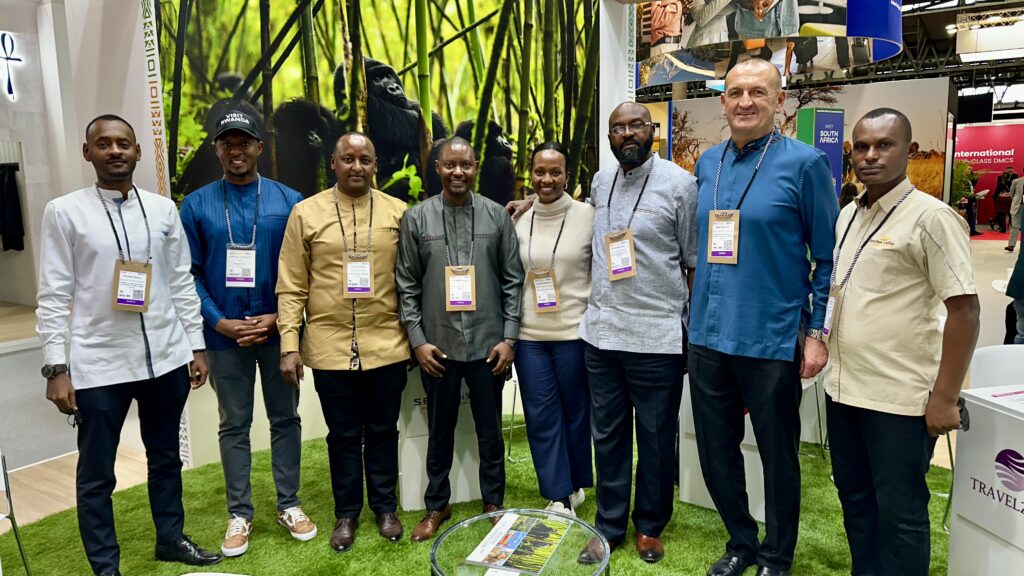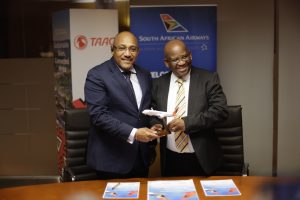According to the 2023 Incentive Travel Index (ITI)*, incentive travel is expected to increase over the coming years, with over 70 per cent of respondents indicating an increased demand for new destinations, as well as seeking fresh and exciting experiences.
With world-class infrastructure, a new airport, beautiful scenery and 10,000 accommodation rooms in all categories, Rwanda is fast evolving as a prominent new destination in the incentives market. Ahead of IBTM World from 28-30 November 2023, Frank Murangwa, the ICCA Deputy Chair for the Africa Chapter, and the Director of Destination Marketing at Rwanda Convention Bureau explains why.
What makes Rwanda uniquely suited to incentive travel?
Rwanda is rich in stunning wildlife and breath-taking natural attractions, making it an ideal incentive destination. Highlights include the Volcanoes National Park, home to the famous mountain gorillas, and Nyungwe National Park, one of Africa’s oldest rainforests, known for its biodiversity and remarkable beauty. This mountainous region is teaming with wildlife, including a small chimpanzee population and 12 other primate species. Akagera National Park, the largest protected wetland in central Africa, is the last remaining refuge for savannah-adapted species in Rwanda. Additionally, Lake Kivu, one of Africa’s great lakes, adds to the country’s natural beauty.
Rwanda has also invested in infrastructure, including the Kigali Convention Centre, BK Arena and five-star hotels such as Radisson Blu, Park Inn by Radisson, Four Points by Sheraton, and Marriott, as well as strategic investment in luxurious accommodations such as One&Only Gorilla’s Nest and One&Only Nyungwe House, Singita Kwitonda and Singita Kataza Lodges, Magashi, and Bisate lodges. making it a preferred destination for international incentives on the African continent.
Can you tell us about Rwanda’s responsible tourism strategy and sustainability goals?
Rwanda places a strong emphasis on preserving its unique biodiversity, particularly in places like Volcanoes National Park. The government and various organisations work closely to protect our country’s natural resources and are committed to protecting endangered species and promoting responsible wildlife tourism.
While known for its wildlife and gorilla trekking, Rwanda offers a diverse range of cultural experiences, adventure tourism, and more, which can help distribute the benefits of tourism more broadly.
In addition, Rwanda’s tourism strategy incorporates local communities through revenue-sharing mechanisms and community-based tourism initiatives like Umuganda, which means “coming together in a common purpose to achieve an outcome”. This approach aims to help local communities benefit from tourism while preserving their cultural heritage. Rwanda’s sustainability goals also include continued investment in community development projects, such as education and healthcare, funded by tourism revenues.
Rwanda’s aim is to become a green, climate resilient and low carbon economy by 2050. The country has been investing in sustainable tourism infrastructure such as eco-friendly lodges, parks and campsites, to try to minimise the environmental impact of tourism activities.
What is the government doing to encourage international meetings and events to Rwanda?
The Government of Rwanda continues to make efforts to position Rwanda as a preferred MICE destination. Travel visas are guaranteed on arrival for all international travellers, ensuring ease of access. Travellers from the Commonwealth, the African Union and La Francophonie countries will automatically receive 30-day visas on arrival.
Rwanda continues to demonstrate that it is one of the safest countries in the world. According to a Gallup Global Law and Order report, Rwanda is the 11th safest country globally and the third safest in Africa. In 2022, Rwanda was named the sixth safest country in the world and safest country in Africa for solo travellers.
www.rcb.rw
IBTM World







